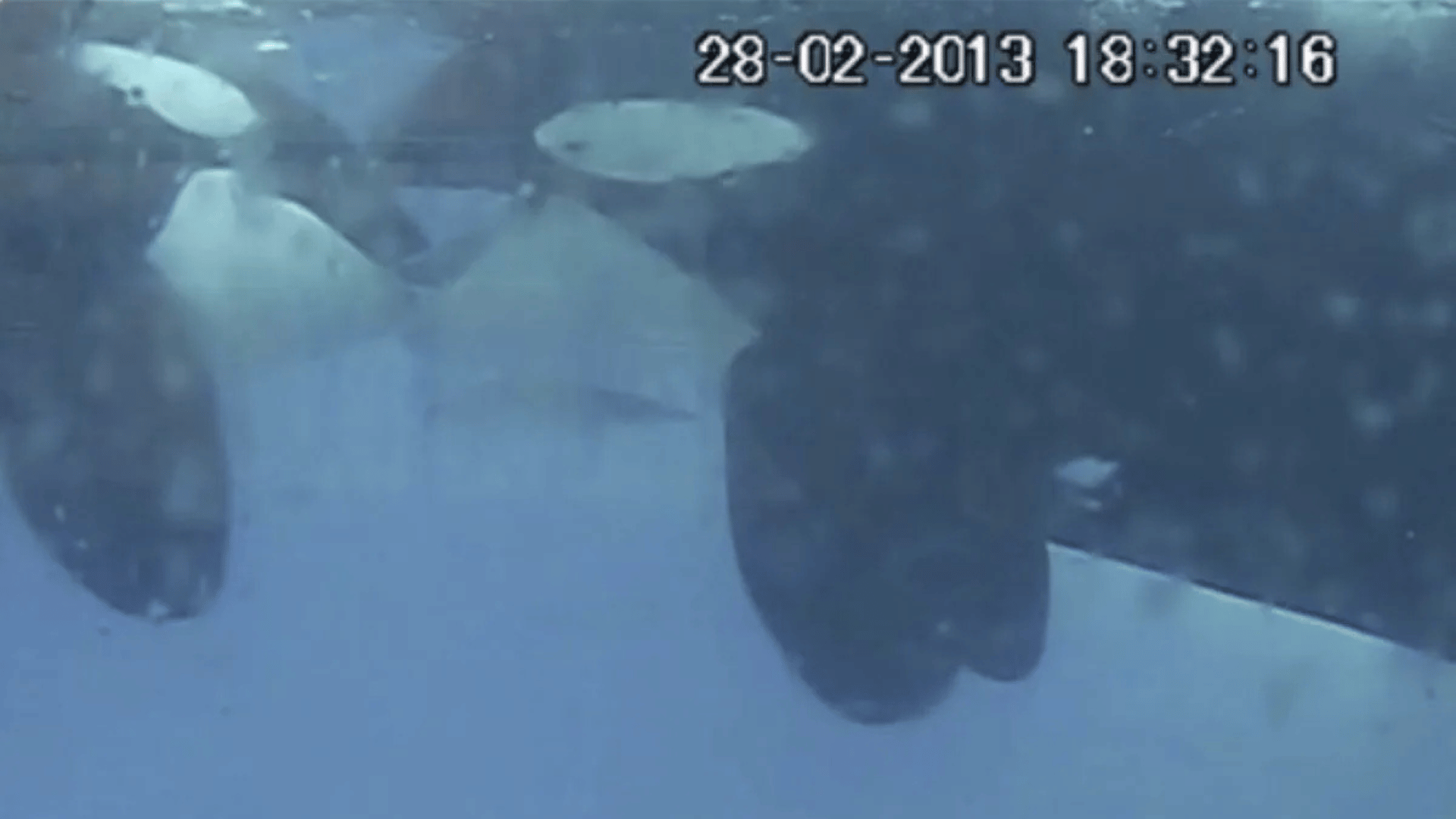A pair of orcas have been filmed ‘kissing’ in the wild for the first time ever during a snorkeling expedition in the Kvænangen fjords in northern Norway.
Wild Orcas ‘Kissing’

According to the new study published in the journal Oceans, this tongue-nibbling behavior has only previously been documented a few times with whales in captivity. Researchers suggest the behavior may be a form of social bonding.
Citizen scientists recorded the behavior, which lasted just under two minutes, while on a whale-watching snorkeling mission. After the encounter, the pair of whales appeared to swim in separate directions.
“Tongue-nibbling is exceptionally rare,” study co-author Javier Almunia, a marine mammal researcher and director of Loro Parque Fundación, told Live Science. “Orca caretakers at several facilities are aware of the behavior, but its prevalence is extremely low — it may appear and then not be observed again for several years.”
Many animals use mouth contact to represent various social cues, including reinforcing bonds or signaling submission to a higher-ranking individual. The researchers speculate that ‘kissing’ could be a form of social bonding, similar to behavior seen in beluga whales.
“Tongue-nibbling itself has not been recorded in other species, but comparable mouth-related social interactions have been observed in belugas (e.g., mouth-to-mouth contact). This could suggest that, given cetacean anatomy — particularly the adaptation of limbs to the marine environment — oral contact may serve as a more versatile means of social communication than in terrestrial mammals,” Almunia said.
“This behaviour appears to serve affiliative purposes and may play a role in reinforcing social bonds or resolving conflicts, akin to grooming or reconciliation behaviours in other highly social species,” he added.
Researchers have also speculated that the behavior could be a “trend” amongst orcas, similar to the dead fish hats they’ve been seen wearing in certain regions. Further study will be needed to determine the actual purpose of the behavior.







